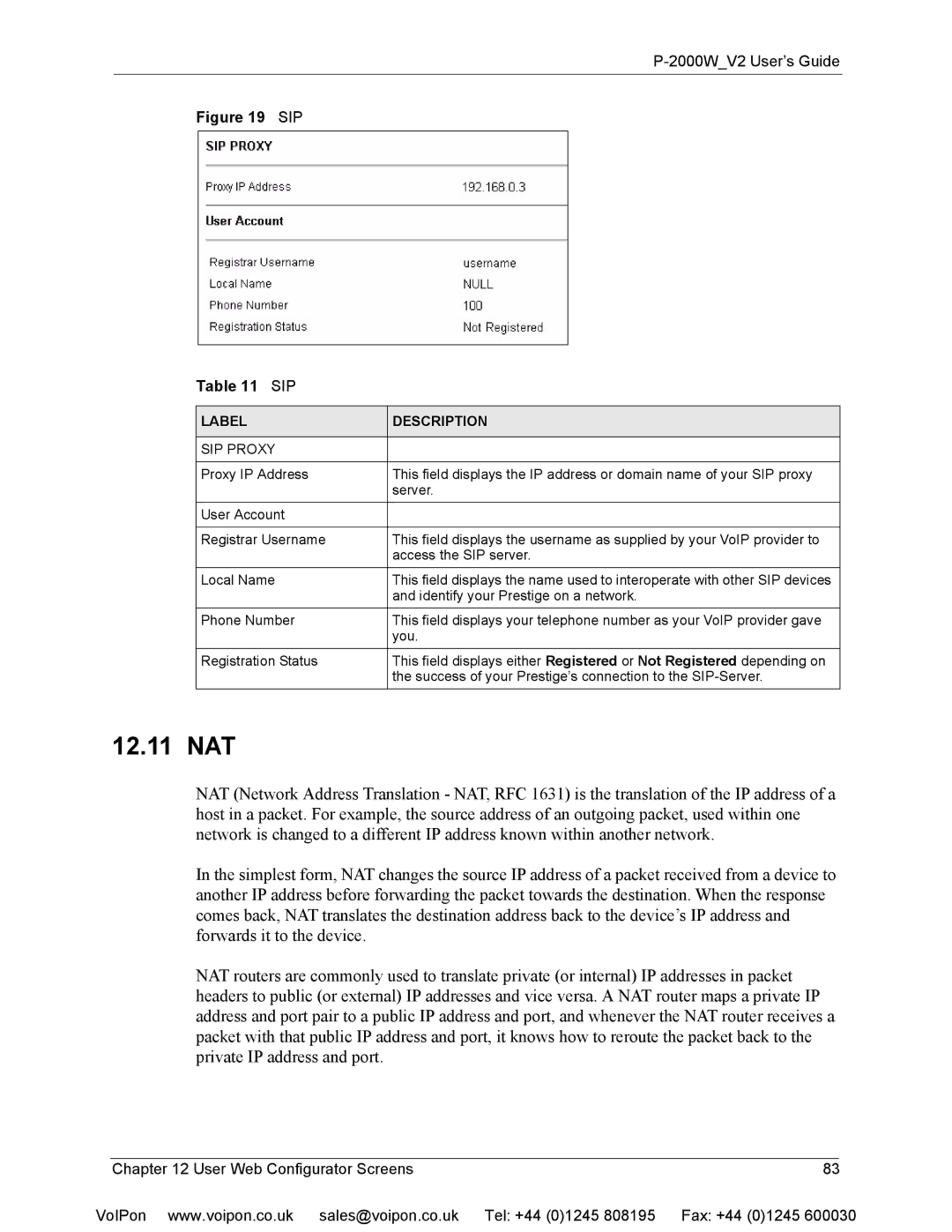
P-2000W_V2 User’s Guide
Figure 19 SIP
Table 11 SIP
LABEL | DESCRIPTION |
|
|
SIP PROXY |
|
|
|
Proxy IP Address | This field displays the IP address or domain name of your SIP proxy |
| server. |
User Account |
|
|
|
Registrar Username | This field displays the username as supplied by your VoIP provider to |
| access the SIP server. |
Local Name | This field displays the name used to interoperate with other SIP devices |
| and identify your Prestige on a network. |
Phone Number | This field displays your telephone number as your VoIP provider gave |
| you. |
Registration Status | This field displays either Registered or Not Registered depending on |
| the success of your Prestige’s connection to the |
12.11 NAT
NAT (Network Address Translation - NAT, RFC 1631) is the translation of the IP address of a host in a packet. For example, the source address of an outgoing packet, used within one network is changed to a different IP address known within another network.
In the simplest form, NAT changes the source IP address of a packet received from a device to another IP address before forwarding the packet towards the destination. When the response comes back, NAT translates the destination address back to the device’s IP address and forwards it to the device.
NAT routers are commonly used to translate private (or internal) IP addresses in packet headers to public (or external) IP addresses and vice versa. A NAT router maps a private IP address and port pair to a public IP address and port, and whenever the NAT router receives a packet with that public IP address and port, it knows how to reroute the packet back to the private IP address and port.
| Chapter 12 User Web Configurator Screens | 83 |
|
VoIPon www.voipon.co.uk sales@voipon.co.uk | Tel: +44 (0)1245 808195 Fax: +44 (0)1245 600030 | ||
